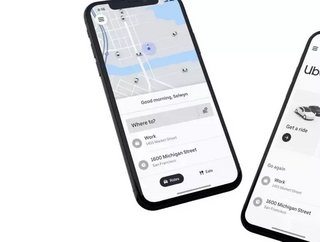The gig economy: why Uber is giving UK drivers worker status

The so-called gig economy has made huge inroads in recent years, with apps connecting customers with workers providing a service.
Whether it’s food delivery with the likes of GrubHub or home rental services such as Airbnb, we’ve become accustomed to the ease of arranging services via our phones and fulfilled by others.
Contractors or workers?
The exact designation of those service providers has long proved a bone of contention. Perhaps the biggest name in the gig economy revolution is ridesharing app Uber, which has just announced it is to grant its “drivers” worker status in the UK, entitling them to all the benefits required under UK law.
The move was prompted by a UK Supreme Court ruling and is the culmination of pushes by the company’s drivers. Notably, however, the offer leaves out couriers working in the company’s Uber Eats business.
Uber makes a U-turn
In a U.S. Securities and Exchange Commission filing, the company said: “Private-hire drivers using its Mobility platform in the United Kingdom (“UK”) will be treated as workers. A worker is a classification that is unique under UK employment law. Workers are not employees (and remain self-employed for tax purposes) but are entitled to the minimum wage (generally called the National Living Wage in the UK), holiday pay, and, if eligible, a pension.
“Going forward, all drivers in the UK will be paid holiday time based on 12.07% of their earnings, paid out every two weeks. Eligible drivers in the UK also will automatically be enrolled into a pension plan with contributions from Uber. These contributions will represent approximately 3% of a driver’s earnings.”
The company further said its UK mobility business represented 6.4% of all bookings in the fourth quarter of 2020, and while it would increase costs in the UK, it did not intend to pass those on to customers.
(Image: Uber)
- Three tech solutions that have reshaped modern workplacesDigital Transformation
- Government cloud provider UKCloud acquired by Hadston 2Cloud & Cybersecurity
- UK to boost cyber security of digital supply chainsCloud & Cybersecurity
- UK government to tackle climate change with space technologyDigital Transformation






